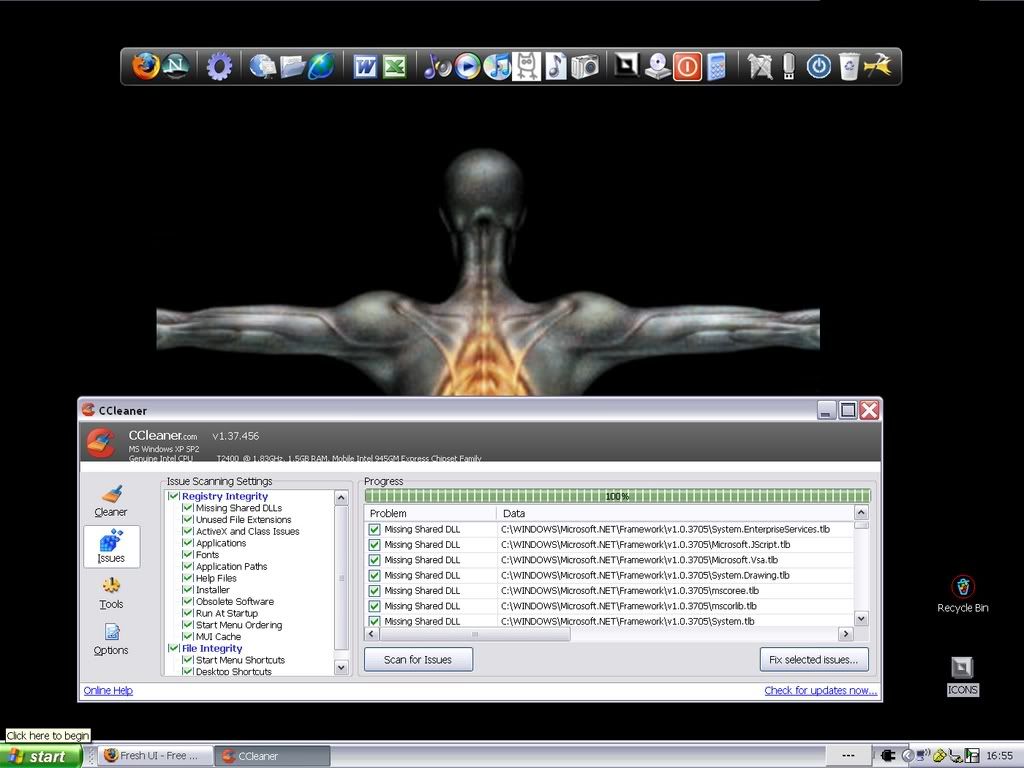Hi
I normally use only the regular cleaner function in C-Cleaner, and today just hit the "issues" button, and "scan for issues", and it shows me about 80 "issues" that can be "fixed"...what really are these issues? (see screen shot below). do these have to do anything with the registry?..i don't want to delete/"fix" anything that will cause problems..

Any of you guys ever use this "issues" tab? if yes, are these "issues" safe to delete?
Thanks a lot.
I normally use only the regular cleaner function in C-Cleaner, and today just hit the "issues" button, and "scan for issues", and it shows me about 80 "issues" that can be "fixed"...what really are these issues? (see screen shot below). do these have to do anything with the registry?..i don't want to delete/"fix" anything that will cause problems..

Any of you guys ever use this "issues" tab? if yes, are these "issues" safe to delete?
Thanks a lot.
